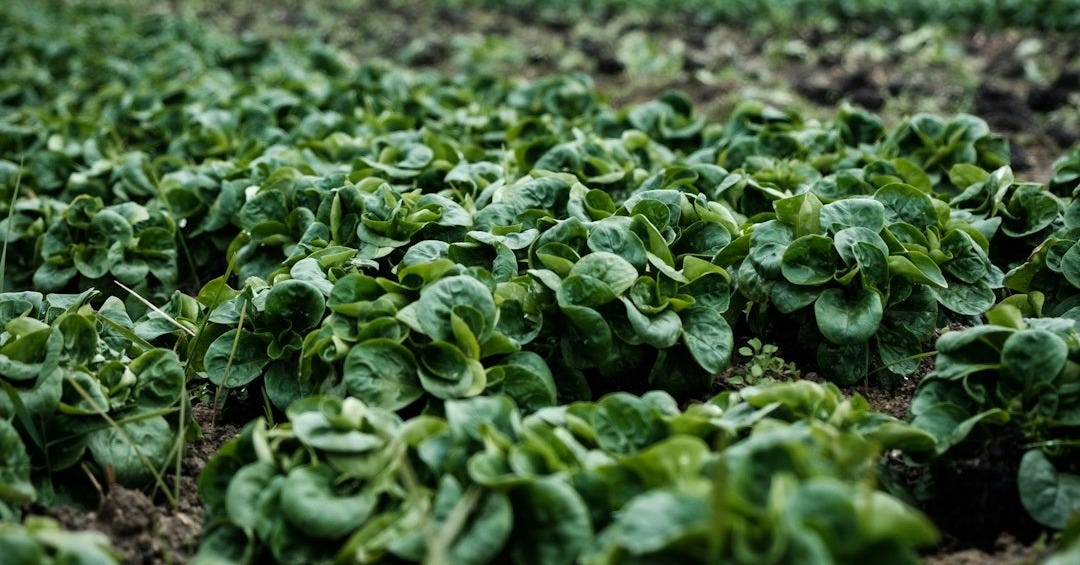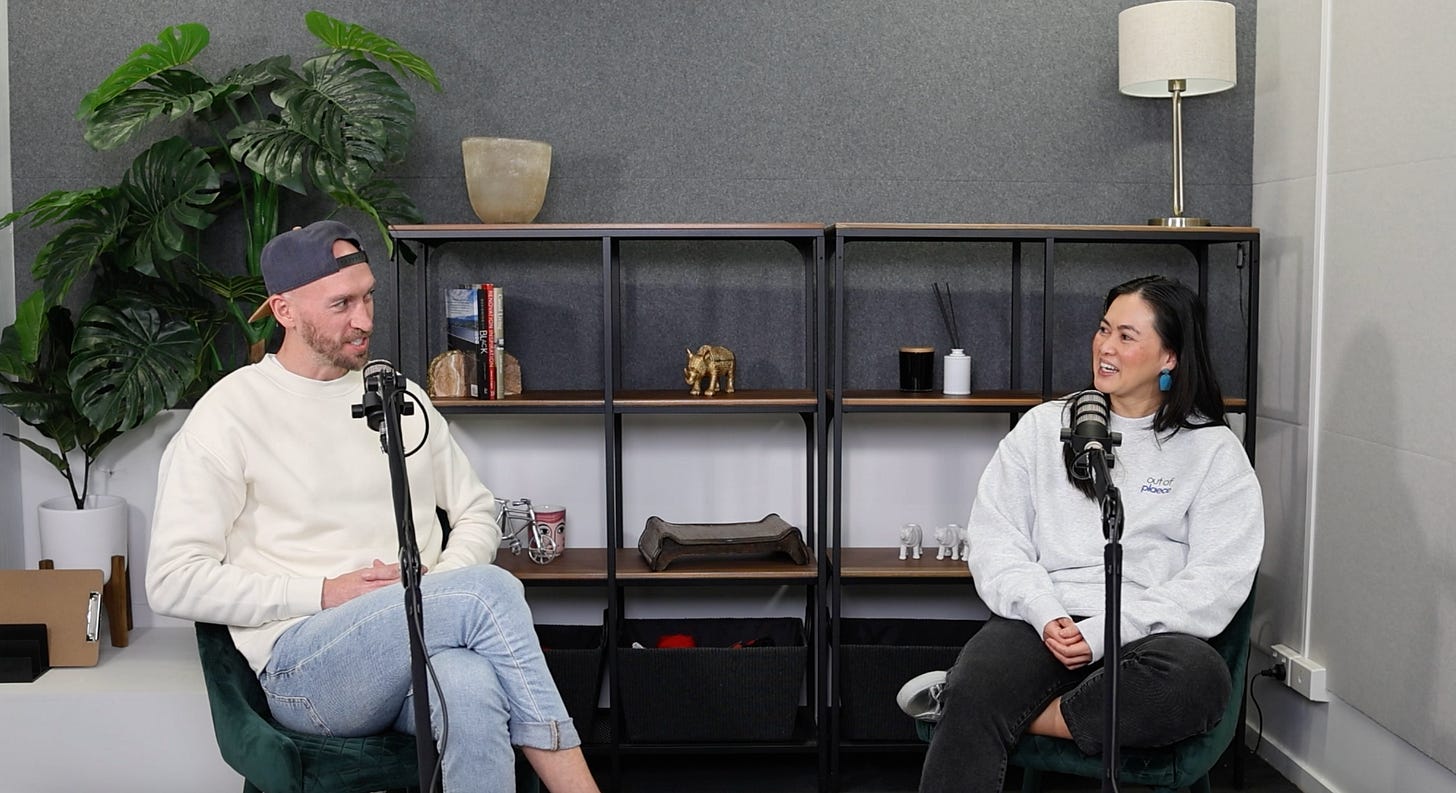If you missed Part One: Growing through the gauntlet of trauma, you can read it here.
What I didn't understand for the longest time was how much trauma I carried that wasn't even mine to begin with.
My parents came to Australia as refugees, carrying trauma that had no words in any language. The kind that lives in your bones when you've lost everything once and know how quickly it can all disappear again.
They rarely talked directly about what they'd survived before coming here. But I felt it in the way they lived in fear and survival.
My mother's way of stockpiling food was a reflection of how scarcity was always around the corner. When Y2K paranoia swept through in 1999, we stockpiled condensed milk, flour, bulk water containers, and two-minute noodles like the world might actually end.

Layer onto that the terror that their children weren't safe here either. It was in the way they'd check on my siblings and me multiple times at night, as if children could vanish while you weren't watching. In the way that I never experienced a sleepover as a teenager because of "what if".
When you're a child of refugees, you inherit a particular kind of fear. The fear that safety is temporary. That everything you build can be taken away without warning. That the ground beneath will crumble in an instant.
My mother worked relentlessly because stopping meant losing safety, financial independence, and the fragile sense that we were finally secure. She saved almost every dollar because poverty was only one disaster away. She worried about everything: our health, our grades, strangers' opinions - because when you've lived through losing control completely, controlling what you can becomes survival.
She taught me to be grateful for everything because you never knew when it might be gone. And yet, she also taught me to hate men because of my father abandoning me. Abandoning us. To work twice as hard because we couldn't afford to be overlooked. To never take anything for granted because she knew firsthand how quickly you could lose everything.
Generational trauma lives in the nervous system. In the way parents hold their children just a little too tightly. In the hypervigilance that gets passed down as "being careful." In the survival strategies that became invisible cages for their children.
From the ages of 5 to 15, we lived on a market garden farm, isolated on a protective 20 acres, where the nearest neighbours were horses, and only really had two neighbours within 1.5 kilometres. A place where my parents could "keep an eye" on us while they toiled to make a living to support all four children and eventually send us to university.
I inherited the fear without understanding what I was afraid of. I was hypervigilant, but I didn't know what danger I was preparing for. The need to be indispensable without realising I was trying to earn a safety that felt perpetually out of reach. My mother taught me to be strong-willed, yet also caring and compassionate for others, but not ourselves.
I lived in this strange spectrum of belief for a long time.

The Long Road to Understanding
My mother died of brain cancer when I was in my mid-20s. For almost fifteen years afterwards, I carried guilt and anger that I couldn't shake. Guilt that I hadn't been a better daughter, that I didn't truly understand what she'd been trying to protect me from. Anger that I'd grown to resent her overprotectiveness over the years, and that she'd left me to figure out how to be a human being without her guidance.
It took me that long to understand that both were just grief in disguise. The anger was actually heartbreak at losing the one person who had an unshakeable belief in me. Anger at myself for not seeing it sooner. The guilt was love that had lost its destination in the physical world. Guilt that I couldn't thank her one last time for the gifts that she'd actually given me.
When you've spent your life in survival mode, even your grief gets filtered through the lens of "how could I have done this differently?".
The freedom in defining it
The shift happened gradually, then all at once.
Books. Podcasts. Therapy. Meditation. Breathwork. Raw, vulnerable conversations with trusted friends who'd done their own work, who realised how the trauma they'd experienced had shaped their world afterwards. Slowly, the pieces started connecting. The perfectionism. The people-pleasing. The hypervigilance. The way I'd organised my entire life around avoiding abandonment, avoiding pain.
It wasn't weakness. It wasn't character flaws.
It was a nervous system that had learned to keep me safe in an unsafe world. And it had done exactly what it was designed to do.
Once you understand your pain, you stop being subservient to it. You can work with it instead of against it. You can have compassion for the part of you that learned to be hypervigilant. You can appreciate how hard your nervous system worked to keep you alive and functioning.
And you can start making different choices.
The gift of conscious living
I still feel the old patterns trying to kick in. The urge to over-prepare for meetings. The instinct to say 'yes' when someone asks for help, I don't have the bandwidth to give. The way my body tenses when conflict arises.
But now I notice it happening. And I can pause. I can ask myself: Is this response serving me now? Is this fear based on what's actually happening, or what my nervous system remembers happening?
I have the option and agency to choose differently.
I left corporate life not because I was running from something, but because I was running toward something. Toward work that felt aligned with who I actually am underneath all those survival strategies.
I started my own business. I began writing. I let myself be visible in ways that would have terrified my younger self. I even started a podcast about feeling out of place. I learned to disappoint people without it feeling like the end of the world. I learnt to say 'no' without explaining.
I discovered that the sensitivity that made me so good at reading rooms and anticipating needs? That's actually a superpower when you're working with clients who need someone who can see what they can't see yet. That lightning-quick ability to recognise patterns.
The perfectionism that used to exhaust me? I've learned to channel it into creating work I'm genuinely proud of, rather than work that just makes me indispensable. The uncompromising, disciplined part of me still shows up. But this time, healthy and aligned towards making an impact in something that I care about, not for the recognition or to make someone other than myself proud.

For anyone still running
If you recognise yourself in this - the steely-souled, the relentless achiever, the people-pleaser, the feeling like you're never quite letting in enough or doing enough - I want you to know something.
You don't have to live there forever.
The hypervigilance that exhausts you?
It's also what makes you incredibly attuned to others' needs.
The perfectionism that drives you to burnout?
It's also what creates the excellence you're known for.
The people-pleasing that leaves you resentful?
It's also what makes you a generous friend, colleague, and partner.
You don't have to throw away these parts of yourself. You just have to learn to work with them consciously, rather than being driven by them unconsciously.
And you have more grace for yourself than you think. You've survived things that would have broken other people. You've built a life despite circumstances that were stacked against you.
It's what defines you.
The work isn't about becoming someone different. It's about becoming who you already are underneath all those protective strategies you learned when you were too young to have other choices.
And once you start that work, you realise something beautiful: the same sensitivity and resilience that evolved from trauma is also what makes you capable of extraordinary things.
When you're carrying inherited trauma from parents who fled everything, you're not just healing yourself. You're honouring their survival while refusing to let their fear become your prison, or your children’s. You're breaking cycles that began in places before you were born, shaped by losses you never experienced directly but somehow learned to guard against anyway.
Thanks for reading. If this resonates, you're welcome to share your own experience. My virtual door is always open for these conversations.
For more on my story, check out my podcast below.





Thank you Ann for sharing your story with such clarity and depth, “how much trauma I carried that wasn’t even mine to begin with.” You’ve managed to capture both the complexity of your loving mother navigating survival instincts from a country at war and your own journey toward understanding and overcoming it in such a vivid, well-rounded way. Your personal story creates a powerful framework that resonates deeply with many people, giving others permission to be their own selves.
Hi Ann, thanks for sharing your heart ❤️ I resonate in so many ways, right down to losing my mum in my 20s aswell. Life is a journey of learning, unlearning, and growing.